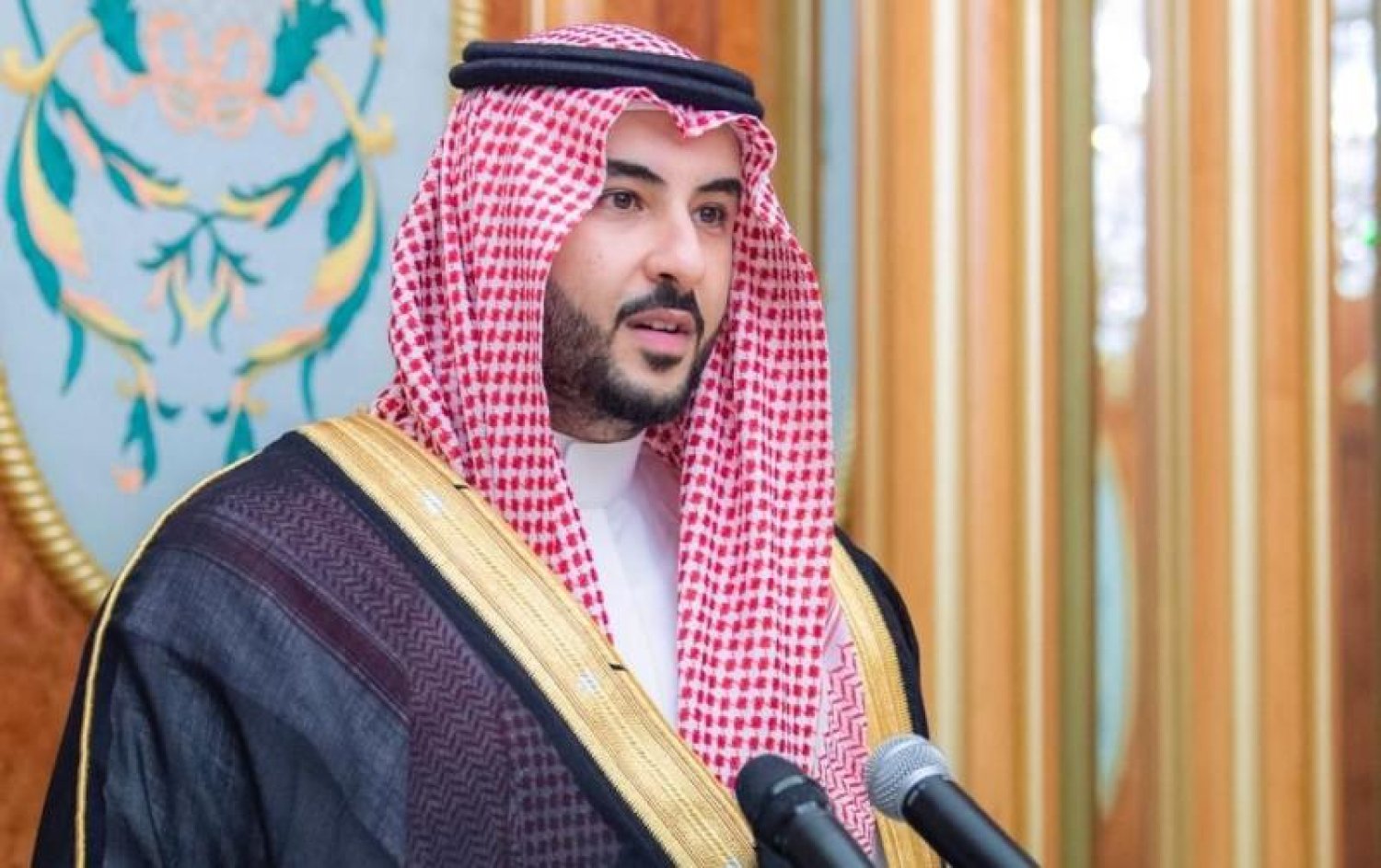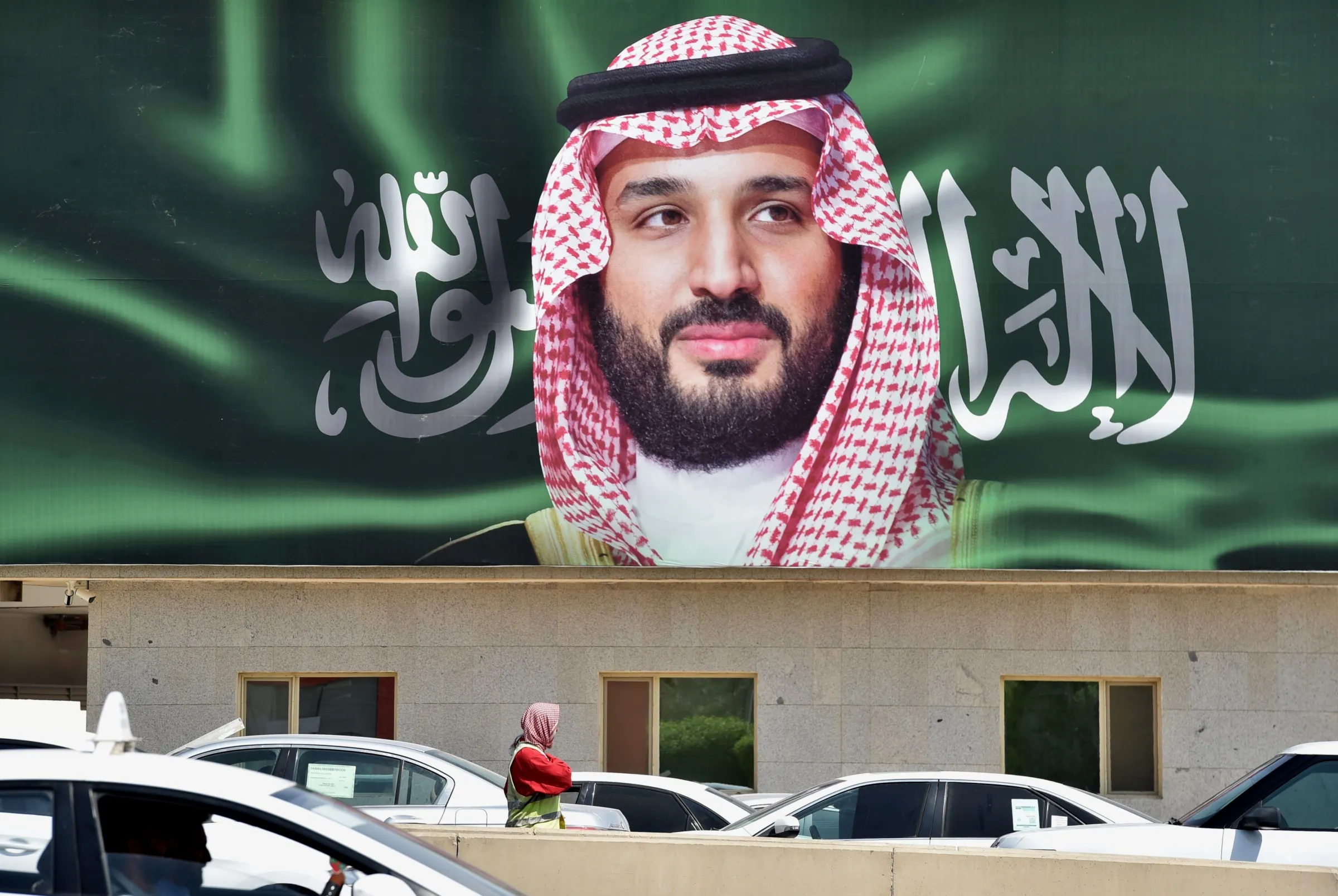mchec.org – Prince Khalid bin Salman, born in 1988, is the Minister of Defense of Saudi Arabia, a key figure responsible for the defense and military strategies of the kingdom. As a prominent member of the Saudi royal family, Prince Khalid has held various high-ranking roles, both diplomatic and military, that have equipped him with the expertise to lead the nation’s defense efforts. Appointed as Minister of Defense in 2022, Prince Khalid has played a pivotal role in modernizing Saudi Arabia’s military capabilities and enhancing its defense partnerships with global allies.
A Background in Military and Diplomacy
Prince Khalid bin Salman is the younger brother of Crown Prince Mohammed bin Salman and son of King Salman bin Abdulaziz Al Saud. He was educated in Saudi Arabia and later in the United States, where he attended King Faisal Air Academy and graduated from the elite Columbus Air Force Base in Mississippi. His early career as a fighter pilot in the Royal Saudi Air Force saw him actively participating in military operations, including missions against ISIS in Syria as part of the international coalition.
Beyond his military career, Prince Khalid has demonstrated diplomatic prowess, having served as Saudi Arabia’s Ambassador to the United States from 2017 to 2019. In this role, he worked to strengthen U.S.-Saudi relations, with a focus on counterterrorism, economic partnerships, and regional stability. His diplomatic experience has been invaluable in shaping his approach to defense, blending military strength with strategic alliances.
Leading Saudi Arabia’s Defense Ministry
As Minister of Defense, Prince Khalid bin Salman is responsible for overseeing Saudi Arabia’s armed forces, military policies, and defense strategies. His leadership comes at a crucial time when the kingdom faces multiple security challenges, including regional tensions, the conflict in Yemen, and threats from non-state actors like terrorist groups.
One of Prince Khalid’s key priorities has been modernizing the Saudi military. Under his leadership, the Ministry of Defense has embarked on a series of reforms aimed at enhancing the capabilities of the kingdom’s armed forces. This includes upgrading military hardware, expanding the kingdom’s domestic defense industry, and improving the training and professionalism of Saudi soldiers.
Saudi Arabia’s military transformation is also in line with the broader Vision 2030 initiative, as Prince Khalid seeks to develop a more self-reliant defense sector. The goal is to reduce reliance on foreign defense contractors by building a robust local defense industry, fostering innovation, and creating jobs for Saudi citizens.
Strategic Alliances and Regional Security
Prince Khalid bin Salman has placed significant emphasis on strengthening Saudi Arabia’s defense partnerships with international allies. His diplomatic experience has allowed him to engage effectively with key global powers, including the United States, the United Kingdom, and other NATO members, to enhance military cooperation and joint training exercises.
A major area of focus for Prince Khalid has been securing the kingdom from external threats, particularly from Iran and its regional proxies. As a leading figure in the Saudi defense establishment, he has been actively involved in the military coalition that supports the internationally recognized government in Yemen. The conflict in Yemen, a key focus of Saudi defense policy, aims to counter the Houthi rebels who are backed by Iran, ensuring that Saudi Arabia’s southern borders are secure.
Prince Khalid’s strategic approach to defense also includes combating terrorism and ensuring the stability of the Gulf region. His efforts in strengthening Saudi Arabia’s naval and air capabilities have been aimed at deterring any threats to the kingdom’s vast maritime interests, including vital oil shipping routes in the Red Sea and Persian Gulf.
Focus on Military Modernization and Defense Industry Development
A cornerstone of Prince Khalid’s tenure as Minister of Defense has been his vision to modernize Saudi Arabia’s military and boost its indigenous defense industry. In line with Vision 2030, he has championed efforts to localize over 50% of the kingdom’s military spending by 2030. To achieve this, the Ministry of Defense has worked closely with Saudi Arabian Military Industries (SAMI), which focuses on producing advanced defense systems locally, ranging from missiles and aircraft to naval vessels.
Prince Khalid’s commitment to building a self-sufficient defense industry also includes fostering international partnerships. Saudi Arabia has signed numerous defense agreements with countries like the United States and France to develop cutting-edge technologies, transfer knowledge, and ensure the kingdom has access to the latest innovations in defense.
Humanitarian and Diplomatic Efforts
Despite his military role, Prince Khalid bin Salman has also been involved in humanitarian efforts, particularly in Yemen. He has emphasized the importance of mitigating the humanitarian impact of the conflict, advocating for aid initiatives to assist the civilian population. Saudi Arabia has been a major donor to humanitarian relief efforts in Yemen, and Prince Khalid has worked to ensure that aid reaches those in need, while also focusing on achieving a political solution to the conflict.
Prince Khalid has continued to play a diplomatic role in shaping Saudi Arabia’s foreign policy, particularly in matters related to defense and security. His background as a former ambassador has enabled him to engage effectively with the international community, presenting Saudi Arabia’s defense objectives in a manner that aligns with broader global security concerns.
Conclusion
Prince Khalid bin Salman has emerged as a central figure in Saudi Arabia’s defense strategy, combining his military expertise with diplomatic acumen. As Minister of Defense, he has been instrumental in modernizing the kingdom’s armed forces, building strategic alliances, and strengthening Saudi Arabia’s regional security posture. His vision for a more self-reliant and advanced military is aligned with the broader goals of Saudi Vision 2030, positioning the kingdom as a stronger and more secure nation on the global stage.


